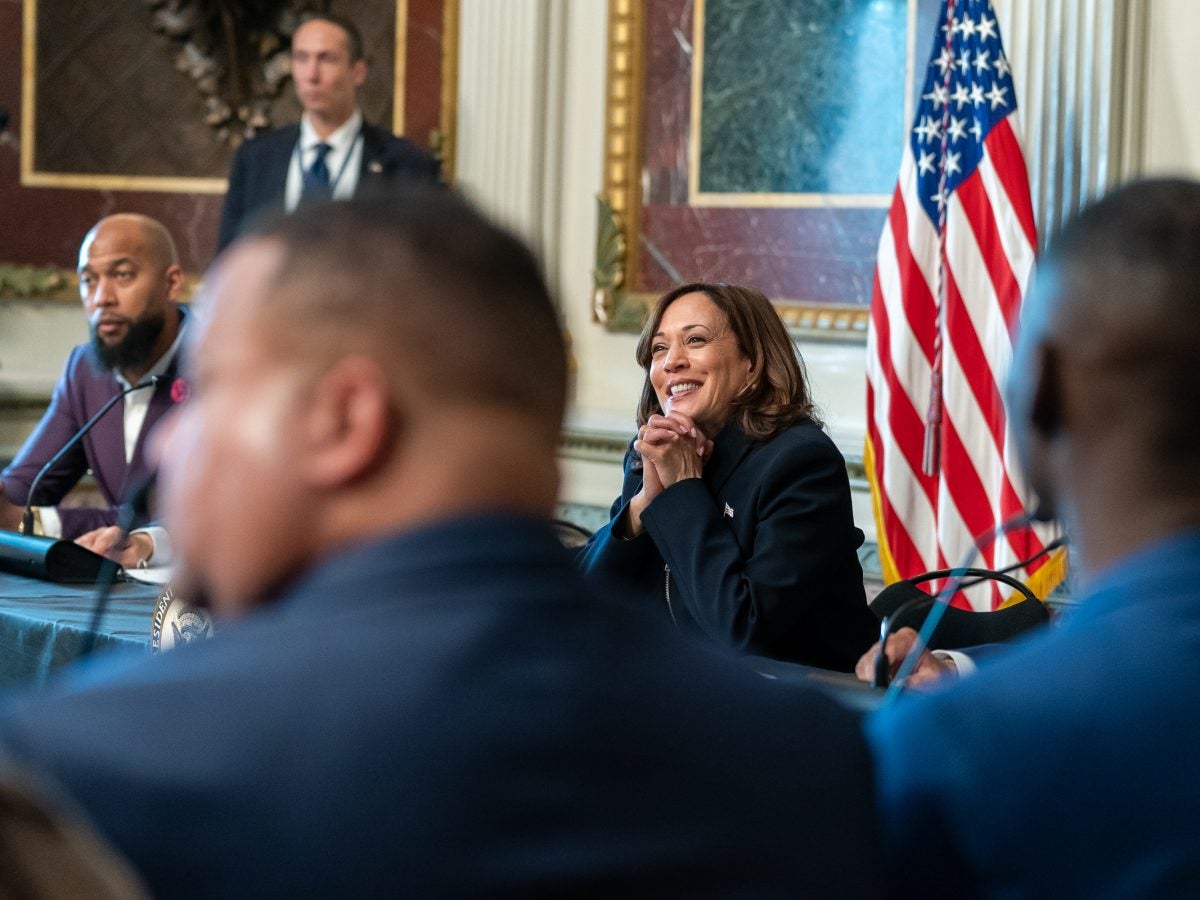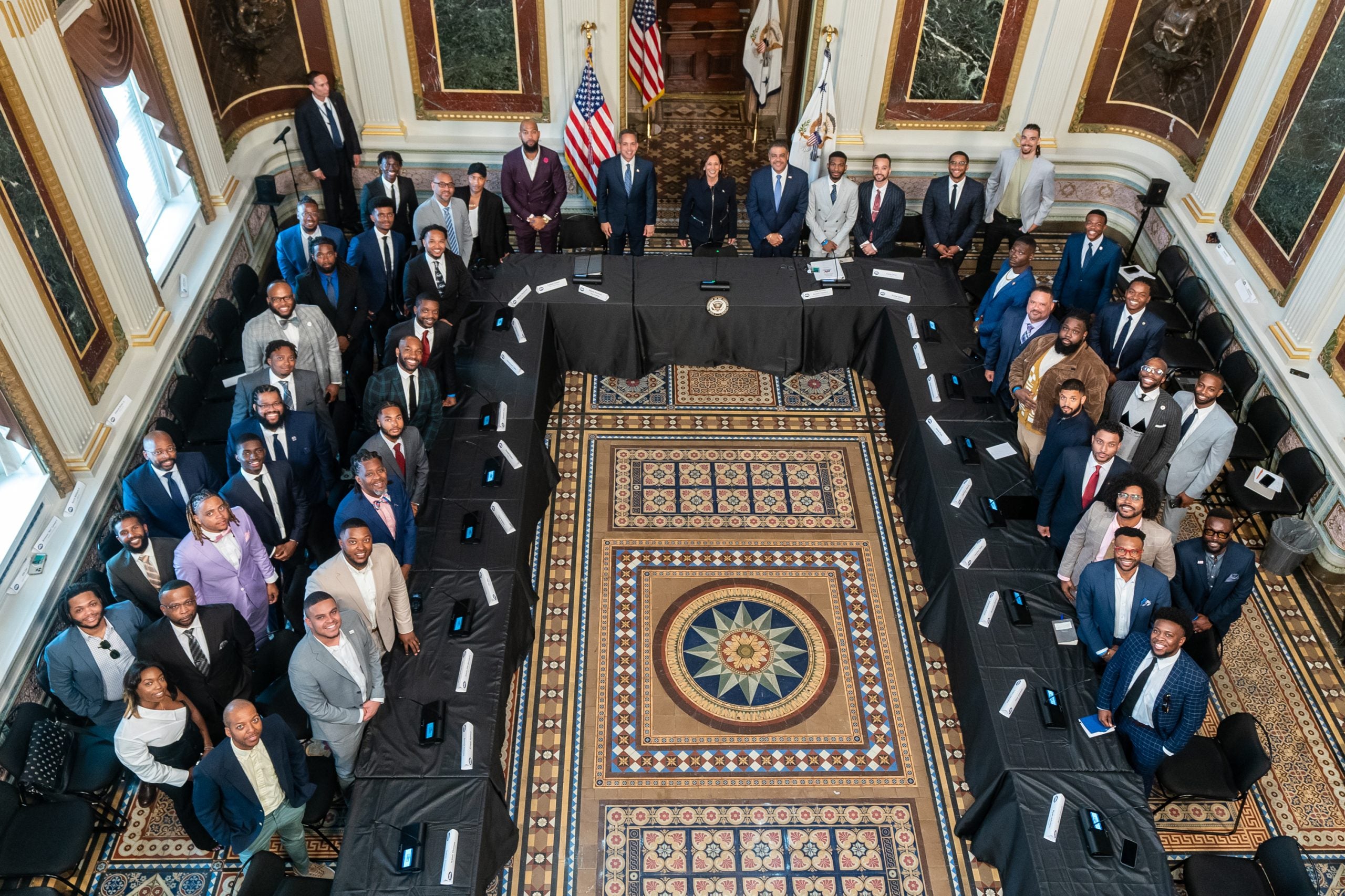
Vice President Kamala Harris convened more than 35 men of color entrepreneurs and small business owners at the White House on Tuesday, the latest in a series of events Harris has held to discuss the myriad resources and opportunities offered by the Administration.
Since taking office, the Biden Administration has seen record growth of small businesses and entrepreneurship, with more than 10.5 million new small business applications in the last two years. The White House also launched a governmental initiative, which amounts to a $100 billion investment in businesses with minority owners.
Researchers at Babson College show how this investment can be critical. Their analysis on entrepreneurship found that “Black entrepreneurs start businesses at higher rates than other groups,” yet “Black entrepreneurs are more likely to be in the lowest third of household incomes.”
At the convening, Vice President Harris delivered opening remarks, talking about the “realities” for small businesses owned by people of color, “which is access to capital, access to markets, access to consumers — access — and what can we do to facilitate and better improve access so that you can then be out there to compete.”
“I’m in the business of gathering folks; but, doing what we did today, focusing on the issues and talking about where we hope to head moving forward is a really important conversation to have.”
Ryan Wilson, CEO of The Gathering Spot
“Because if your product’s good, you will be able to do that, but access to resources shouldn’t be the obstacle between you being able to have what is necessary to compete in a fair way or not,” the Vice President continued.
Ryan Wilson, CEO of The Gathering Spot, a private membership network, was on hand and told ESSENCE what being in attendance meant to him.
“There are very few opportunities to have as many entrepreneurs of color in the same room,” Wilson shared. “I’m in the business of gathering folks; but, doing what we did today, focusing on the issues and talking about where we hope to head moving forward is a really important conversation to have.”

Brandon Blackwood, Founder and CEO of the eponymous fashion company rocked by celebrities such as Solange Knowles and Lupita Nyong’o, was also in attendance and echoed Wilson’s sentiments. “It was really amazing to see a room full of black entrepreneurs being heard or listened to and voicing their opinions,” he noted.
Blackwood added how “with entrepreneurship, it’s so easy to feel alone. I think it’s very easy to think your problems are the only problems that exist, you don’t really get to be in a room with other people who are going through similar things as you. So that was a really beautiful and cool thing to see that I wasn’t the only person that had these issues and that these issues were things that people such as Madam Vice President wanted to address and talk about.”
Morehouse College junior Tyler Greene is a leader in the climate space, and has already headed up ventures to serve at-risk communities. When asked about why these policy conversations are so imperative, he noted “when we realize that entrepreneurship has been one of the greatest ways to grow capital and the greatest ways to mobilize yourself in this economy, the fact that we face barriers to access to capital is an issue in and of itself.”
“If we aim to truly uplift ourselves, we need more small business owners, more Black and brown people specifically focused on issues that we know are plaguing us like mental health, like climate, and it’s really [about] ensuring that we’re prepared as not only citizens but as people to have ownership not only over our careers or income, but our lives in general, holistically,” continued Greene.
Wilson chimed in with how “We have to talk about how we get businesses to start, but also how we get them to scale, and policy is that conversation. It’s about focusing in on what are the steps that we need to take to make sure that businesses like mine and for many of the folks that were here today, have the opportunity to be as big and as bold and as bad as the companies that we see scaling throughout the country from other communities.”
The most important lesson they’ve learned throughout their time as entrepreneurs: for Greene, it’s always “reminding myself of my mission no matter what the opportunity or downfall is of the current moment;” for Wilson, “business is about people, it’s about relationships;” and for Blackwood, it’s about not “tak[ing] ‘noes’ too personally.”